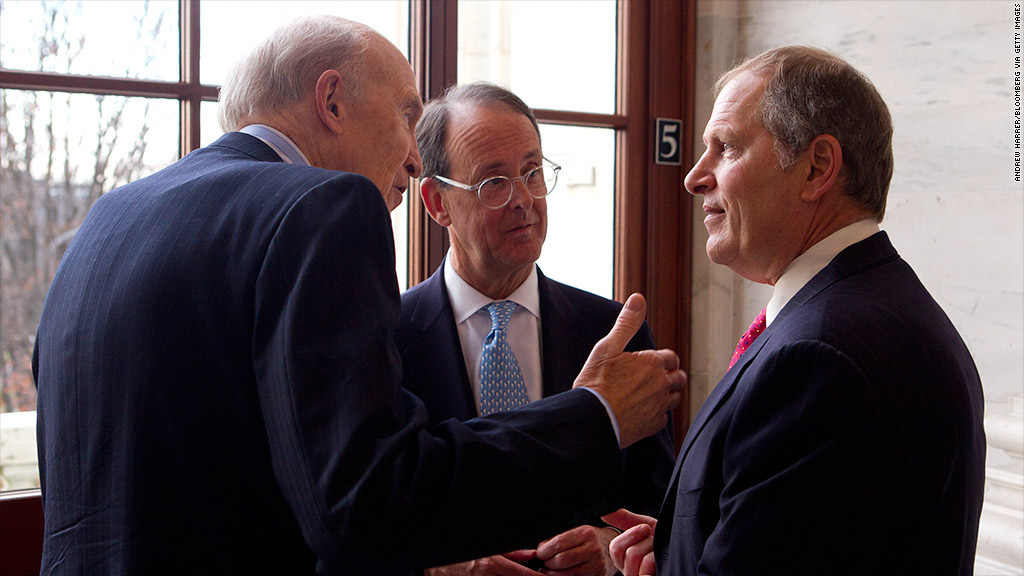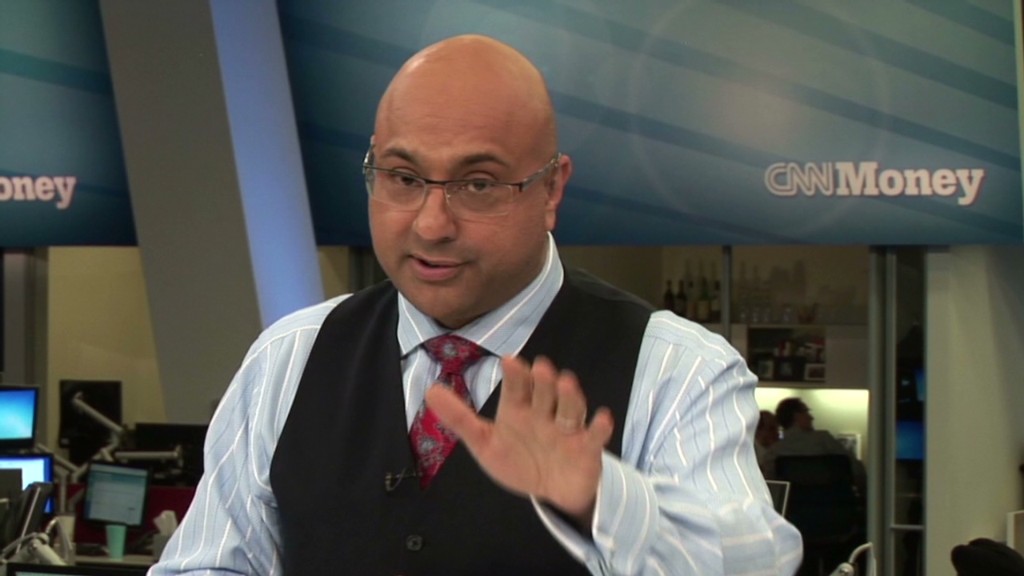
The election may be over. But there's a "Campaign to Fix the Debt" backed by millions of dollars that's well under way and gaining a voice in Washington.
And on Wednesday, some of its members will be meeting with leaders from both parties on Capitol Hill as lawmakers struggle with a way to avert the fiscal cliff.
The group's stated mission is to urge "Washington to agree to comprehensive debt reform that avoids the fiscal cliff and puts the long-term U.S. debt load on a gradual path of reduction."
Although it is a nonpartisan effort, it has come under partisan fire from different directions.
The campaign was founded by Erskine Bowles and Alan Simpson -- the co-chairmen of President Obama's deficit-reduction commission in 2010.
Related: 8 things that could kill a deal
It recently launched a print, digital and outdoor advertising campaign, and has established local chapters in 17 states.
The campaign has built up a $42 million "war chest" thanks to contributions from businesses, foundations and individuals. Among them is billionaire investor Peter G. Peterson, who has earmarked much of his wealth to build awareness of the country's long-term fiscal problems.
The campaign says it isn't advocating for any particular plan, but it supports a set of "core principles" that it believes a successful debt-reduction plan must satisfy.
For starters, such a plan must garner bipartisan support. It should reduce the country's debt gradually in a way that supports economic growth and protects the vulnerable. And it must make changes across the budget.
Among those changes, the campaign states that it should "reform Medicare and Medicaid, improve efficiency in the overall health care system, and limit future cost growth." It should make Social Security solvent. And it should include comprehensive tax reform that "broadens the base, lowers rates, raises revenues, and reduces the deficit."
The campaign's bipartisan steering committee is made up of former lawmakers, governors, deficit hawks, business people and a former head of the World Bank.
An online citizens' petition on the group's website has more than 300,000 signatures -- a large number but still well below the stated goal of 10 million.
But the most high-profile part of the campaign -- and the one that has been sharply criticized by the left -- is its CEO fiscal leadership council, which includes some of the biggest names in corporate America.
In October they went public with their backing of the campaign's core principles.
New York Times columnist Paul Krugman counts the group among what he calls "deficit scolds" and said it's "campaigning for cuts to Social Security and Medicare, even while making lower tax rates a 'core principle.'"
The Institute for Policy Studies, a longtime critic of CEO pay and economic inequality, has since put out two publications impugning the motives of those on the council.
"These CEOs paint a stark picture of hypocrisy," said Scott Klinger, a co-author of one of the reports said in a statement. "They're simply taking advantage of the so-called 'fiscal cliff' to push the same old agenda of more corporate tax breaks while shifting costs onto the poor and elderly."

Jon Romano, a Fix the Debt spokesperson, said the campaign's supporters are willing to do their part to help policymakers reach a consensus on what are difficult issues.
"It's unfortunate some are engaging in the kinds of divisive attacks that contribute to the gridlock the campaign is trying to break. It's time for constructive dialogue," Romano said.
At the same time, the CEOs are not exactly getting a ton of love from other business groups, some of which don't share their view that more tax revenue should be raised to help reduce deficits.
But they are getting a hearing inside the Beltway. Last week, some of the council's CEOs met with Obama, who also has met with labor leaders, small business owners and other fiscal cliff stakeholders. This week, other members of the CEO council are meeting with Obama, as well as with Republican and Democratic leaders in the House.
At the same time, the campaign's leaders -- including Bowles and Maya MacGuineas, president of the nonpartisan Committee for a Responsible Federal Budget -- met this week with Treasury Secretary Tim Geithner, White House Chief of Staff Jack Lew and other senior administration officials who will be involved in the fiscal cliff negotiations.


